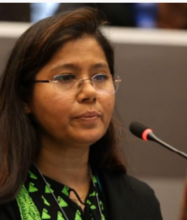IPEN 2020 Global Meeting
IPEN’s 2020 Global Meeting & Forum took place in Bishoftu, Ethiopia, from the 6th – 10th of February. More than 100 environmental, health, and human rights leaders from over 50 countries came together to share the work they do locally and globally to ensure a just and healthy future for everyone by eliminating harm to human health and the environment from toxic chemicals.



